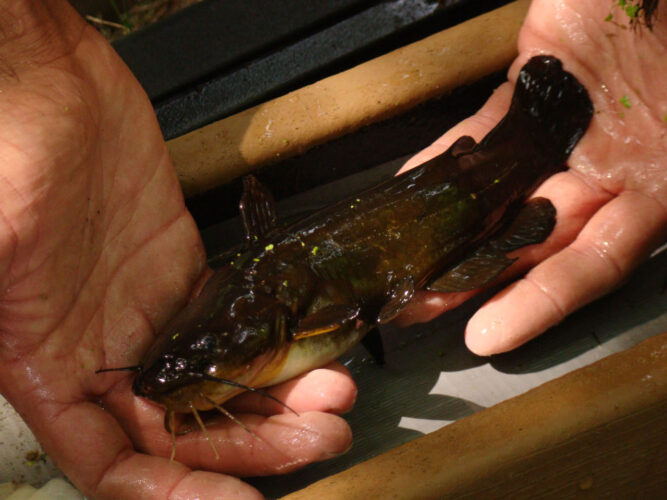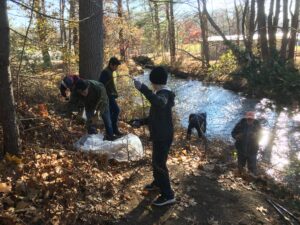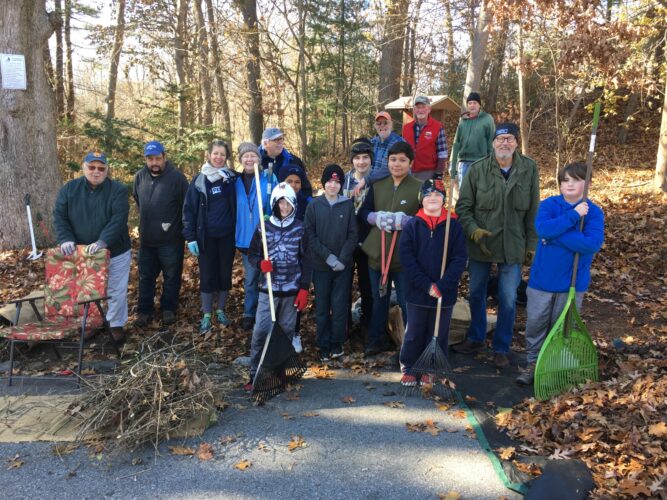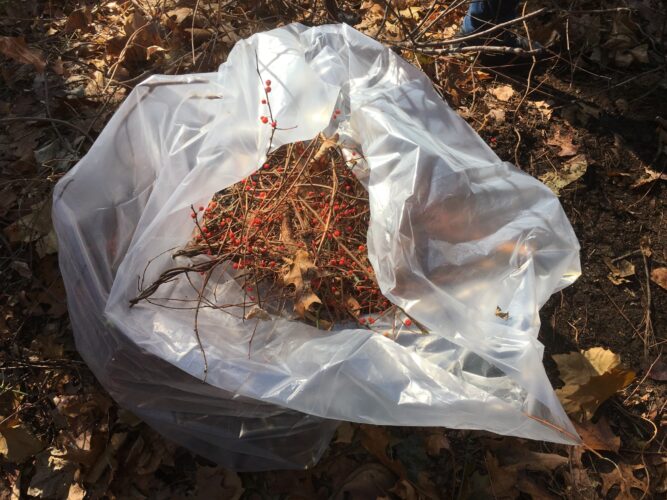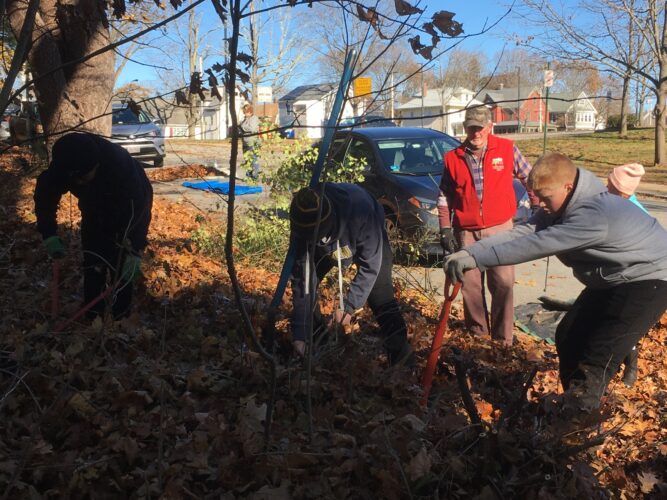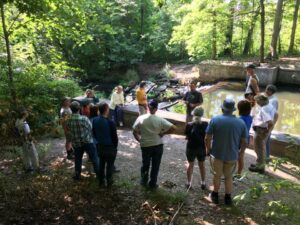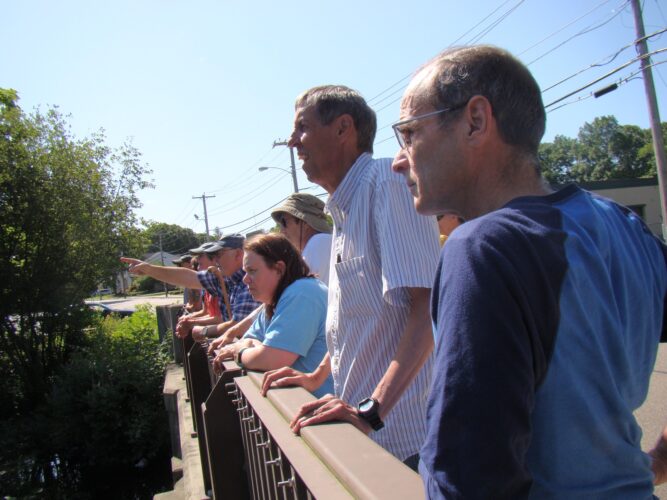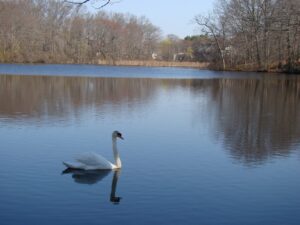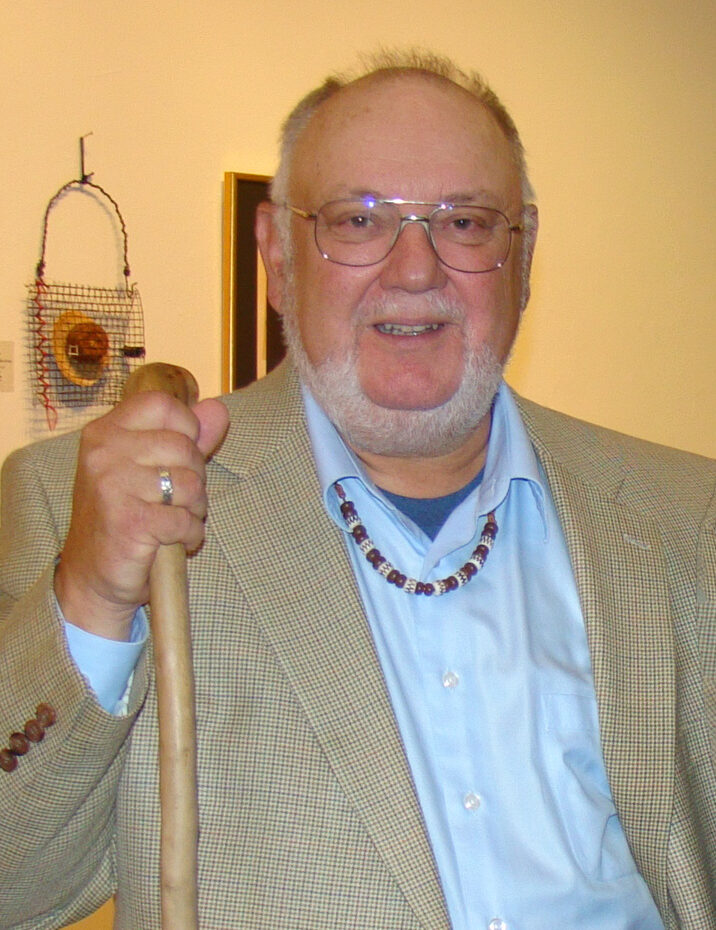
Don Doucette at the 2011 Attleboro Land Trust Annual Meeting.
Don Doucette, long-time advocate of watershed conservation, passed away on May 9. Don was devoted to the preservation of our local environment and its history. He was a founding member of the Ten Mile River Watershed Alliance (TMRWA) in 1990, and he with his wife Nancy were early members and supporters of the Attleboro Land Trust, which was founded that same year.
A partnership between the two organizations resulted in the donation of Larson Woodland to the land trust by Ray Larson in 1997. Don played a key role in that acquisition. Earlier, in 1996, the TMRWA had dedicated a 3-mile urban trail beginning at Balfour Riverwalk Park and following the Ten Mile River upstream as far as West Street. A guide to the Ten Mile River Heritage Trail, written by Don, described historic stopping points along the route.
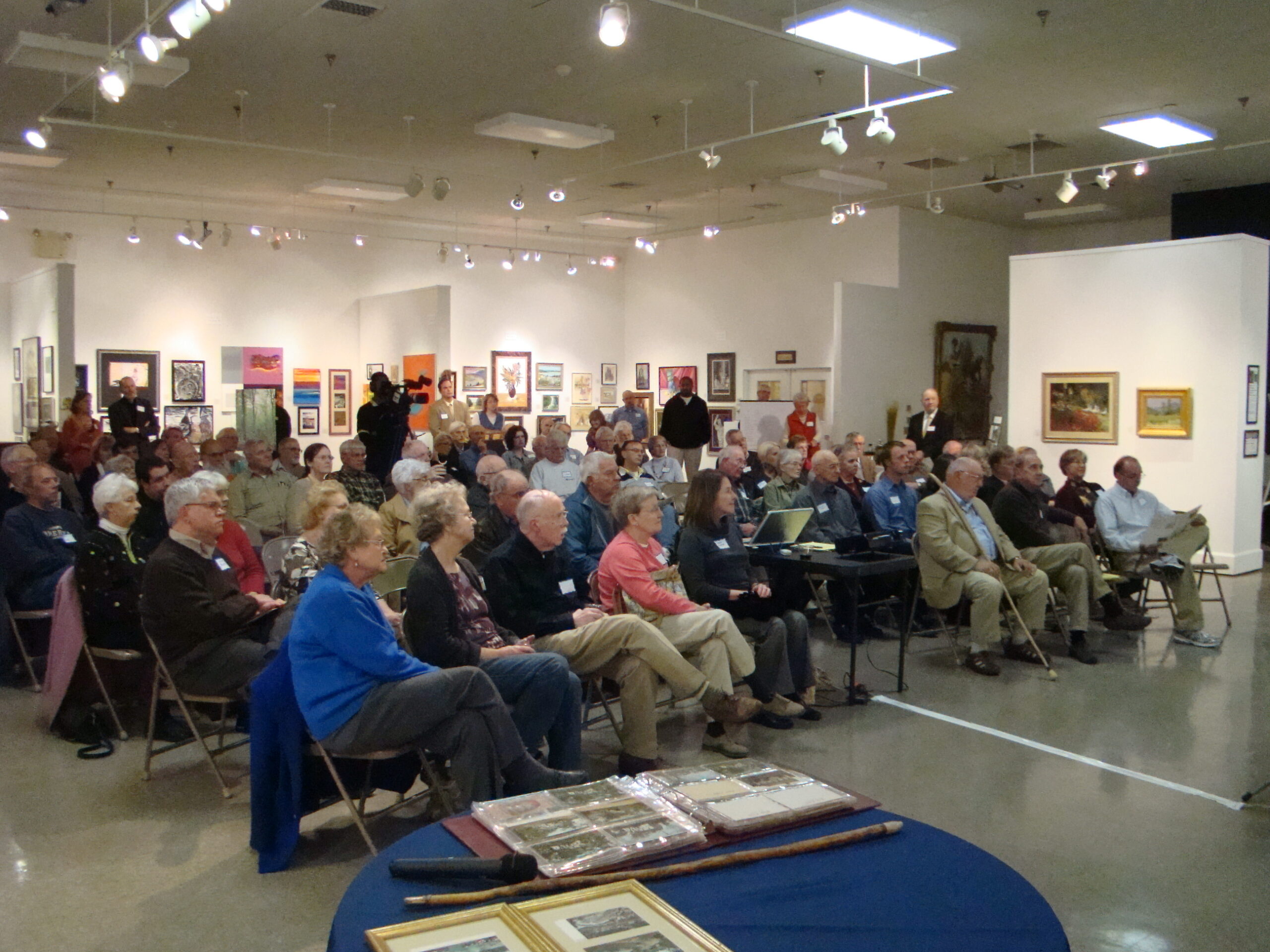
2011 Attleboro Land Trust Annual Meeting.
One of the land trust’s most memorable annual meetings was in 2011, when Don was our keynote speaker. His talk, “The Ten Mile River Watershed: A Walk Through Time,” was accompanied by a stunning slide show consisting of mostly of postcards he had collected of scenes photographed up and down the Ten Mile during the early decades of the twentieth century. Don’s authoritative grasp of his subject reflected not only painstaking research, but the fact that, with fellow TMRWA member Mark Benoit, he had trekked the entire 27-mile length of the river, from Plainville to East Providence, in 2 days in 1995.
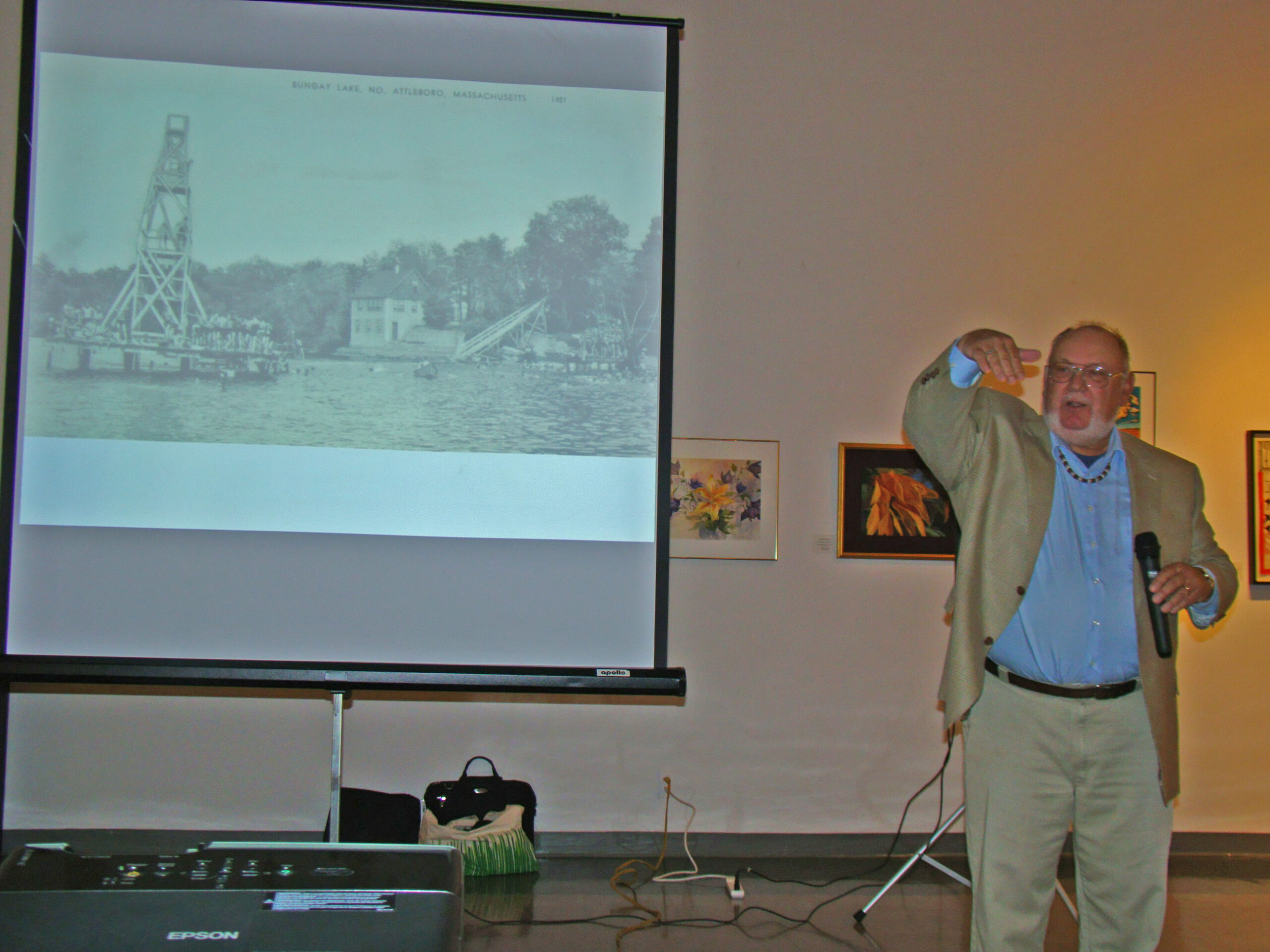
Keynote speaker Don Doucette at the 2011 Attleboro Land Trust Annual Meeting.
Of his motive, Don wrote, “The primary intent was adventure–to cross, as does water, all human imposed, social and physical bounds that tend to fragment the Ten Mile River Watershed. Envisioned was a more intimate encounter with the river–we were not disappointed.”

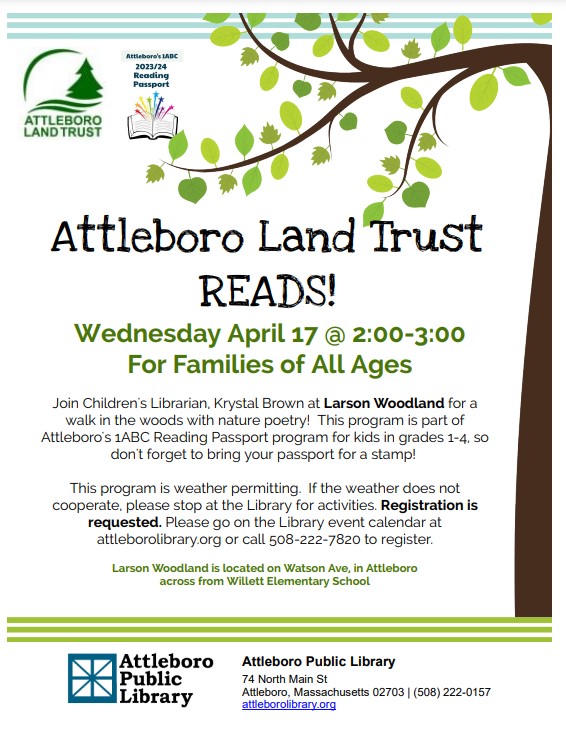
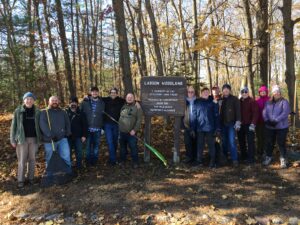
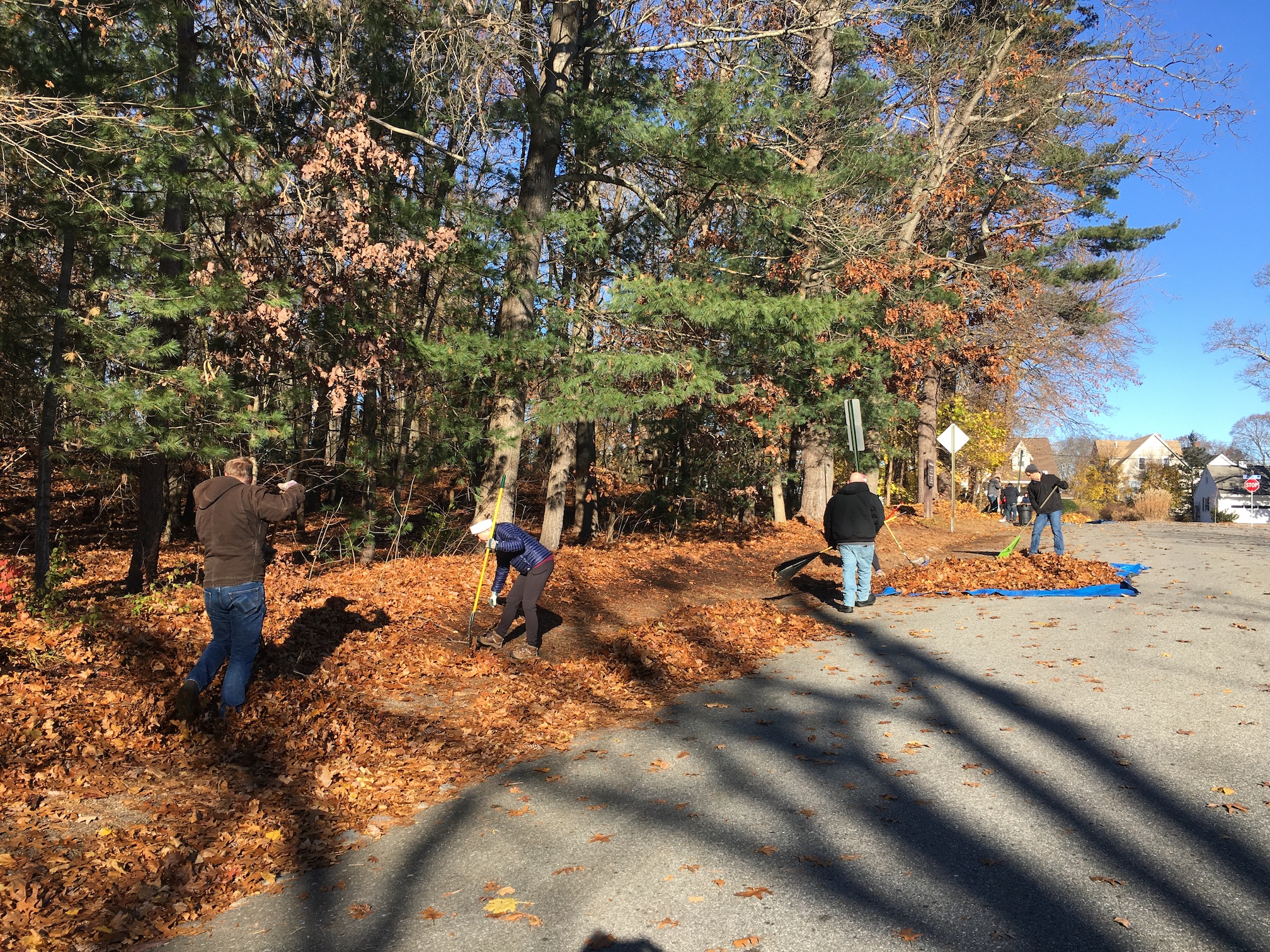
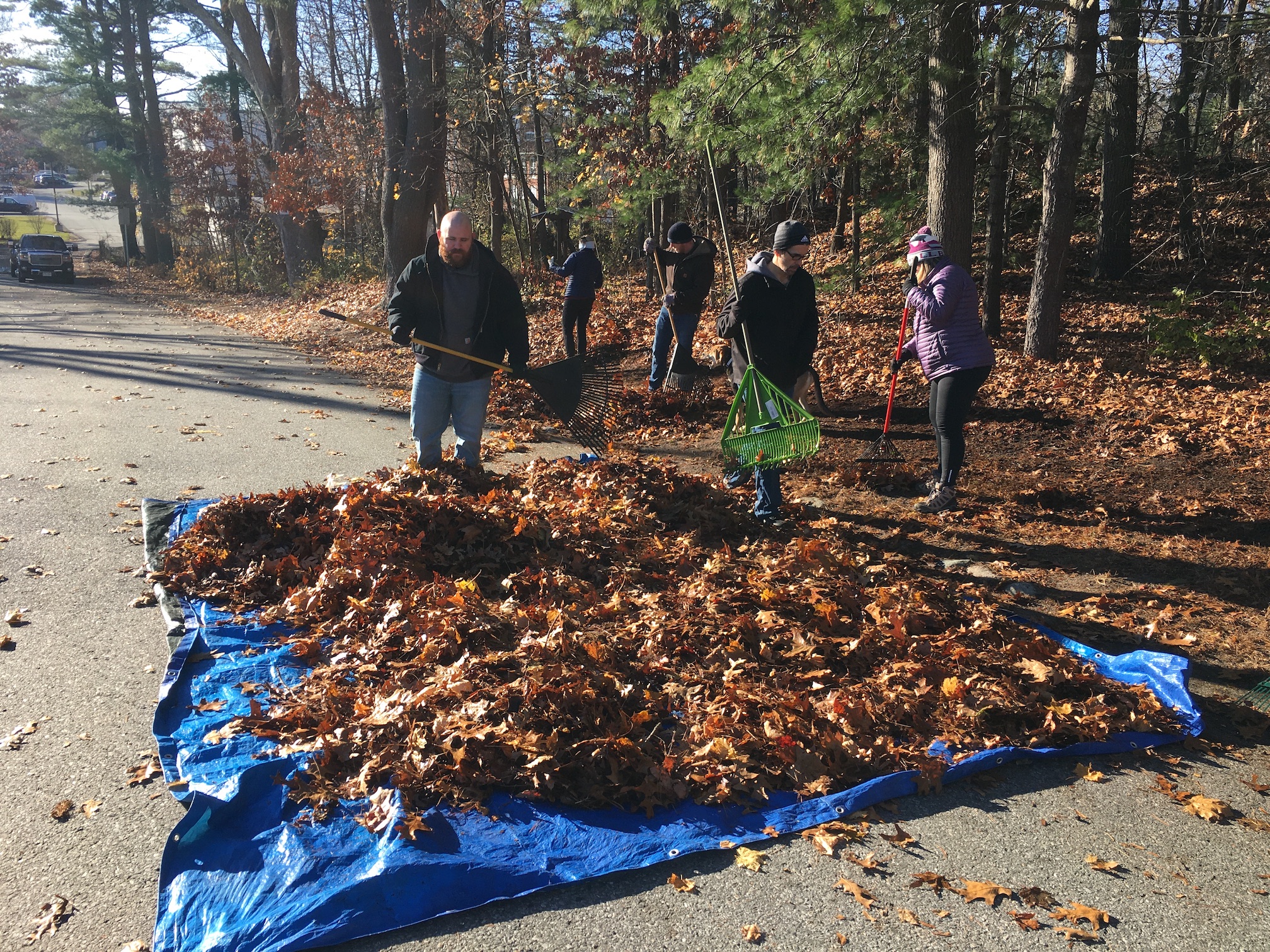
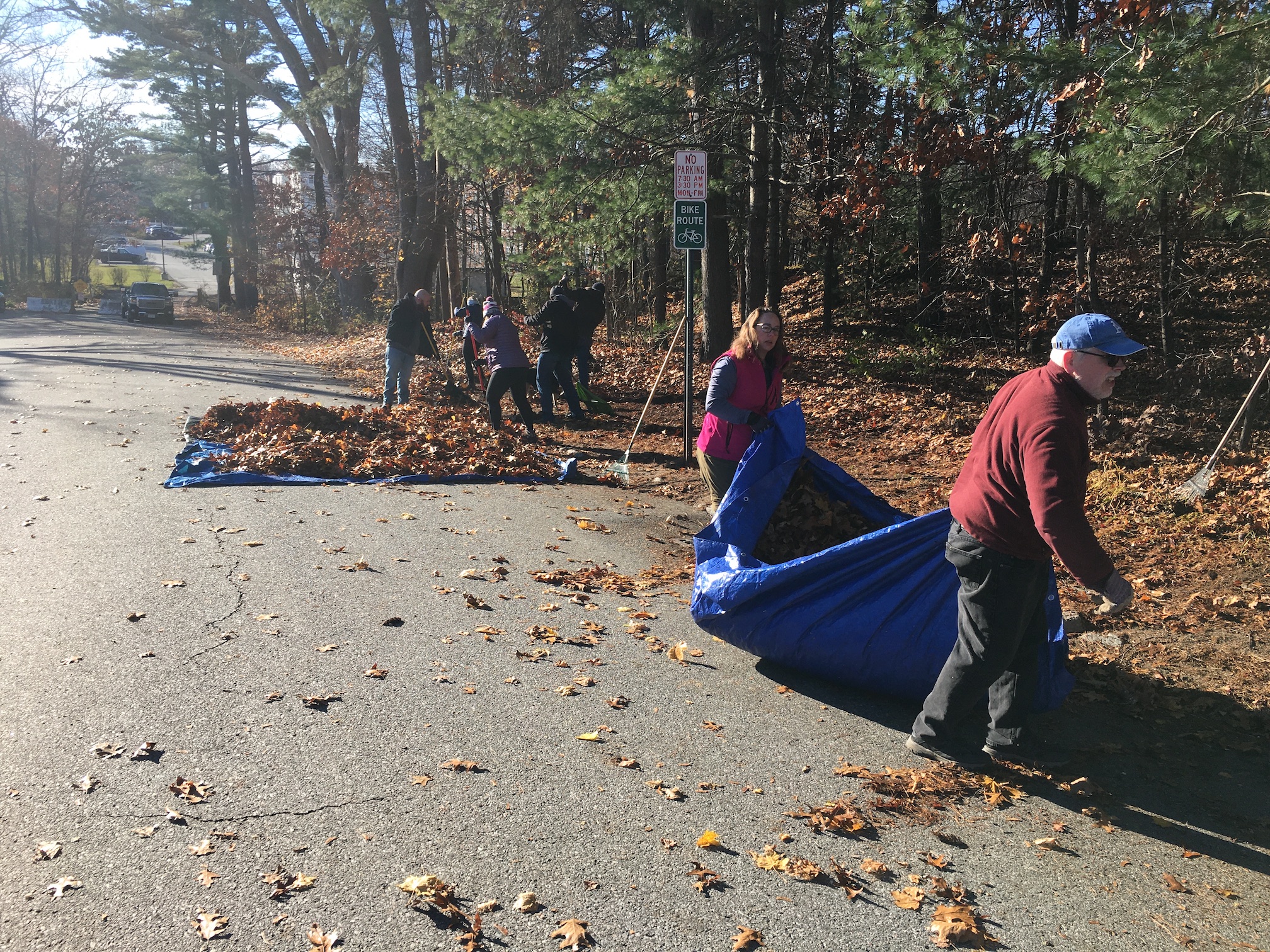
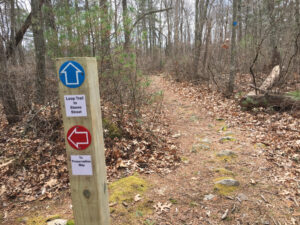
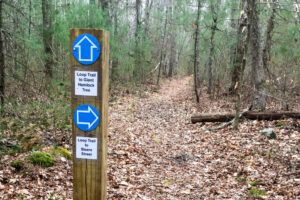
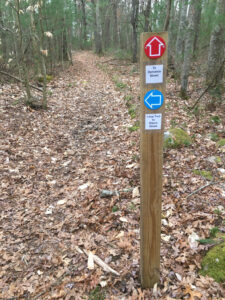
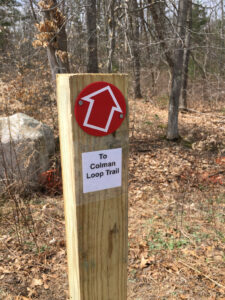
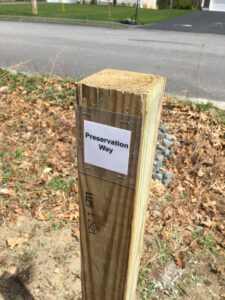
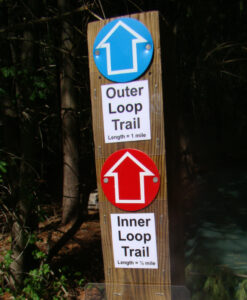
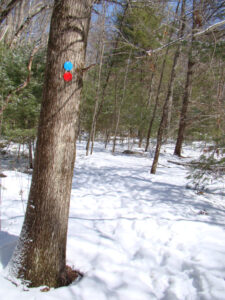
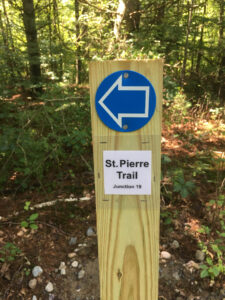
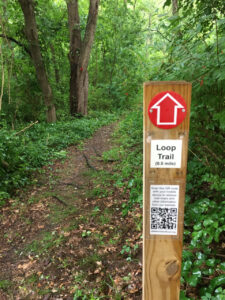
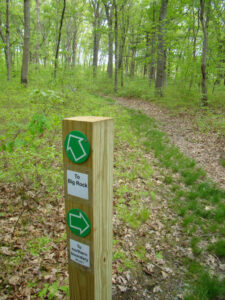
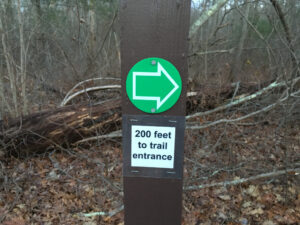
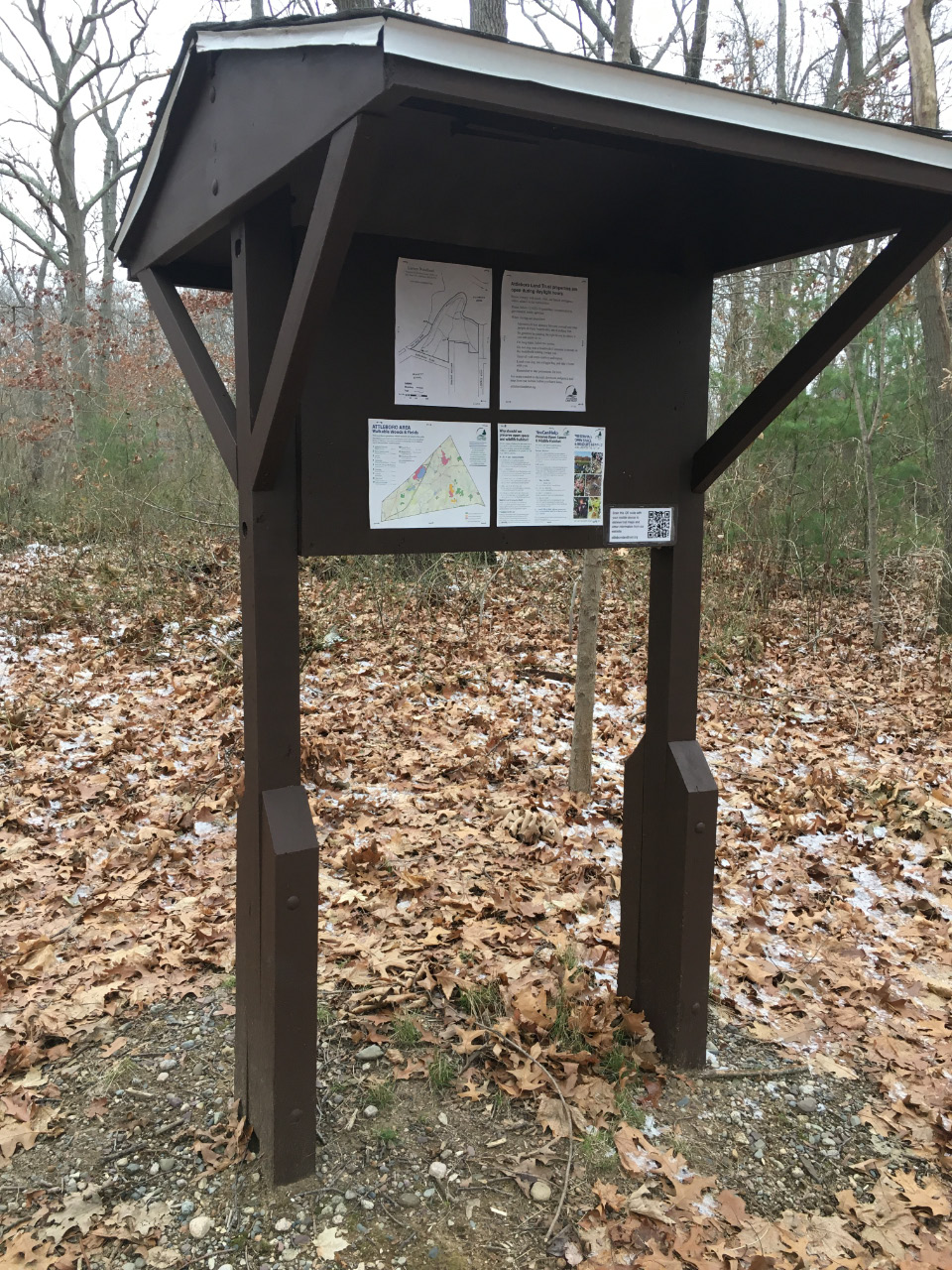
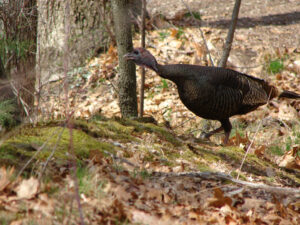
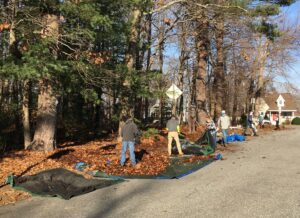
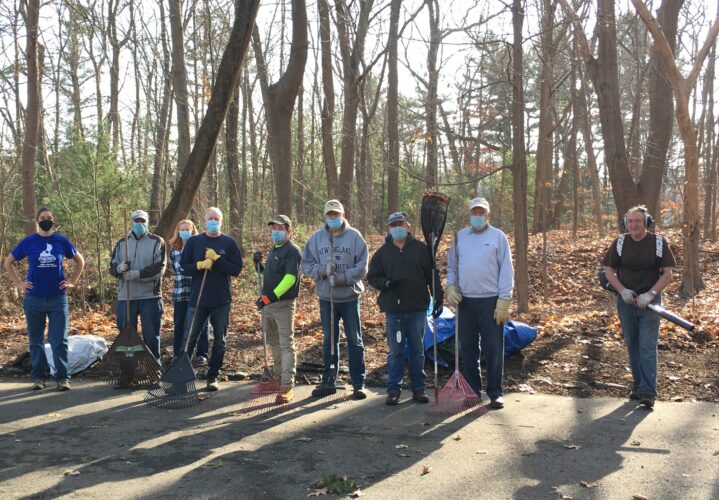
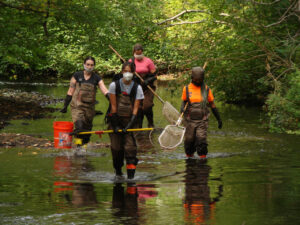
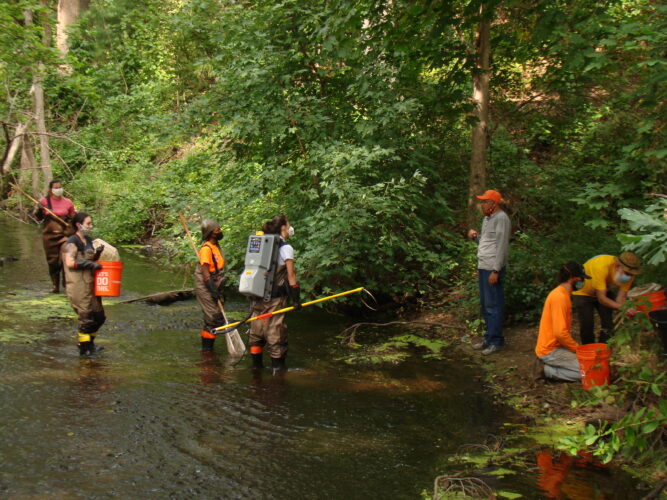 Volunteers helped collect the fish, using a device which temporarily stuns the fish with a slight electric shock. The fish are counted and measured, then returned unharmed to the river.
Volunteers helped collect the fish, using a device which temporarily stuns the fish with a slight electric shock. The fish are counted and measured, then returned unharmed to the river.